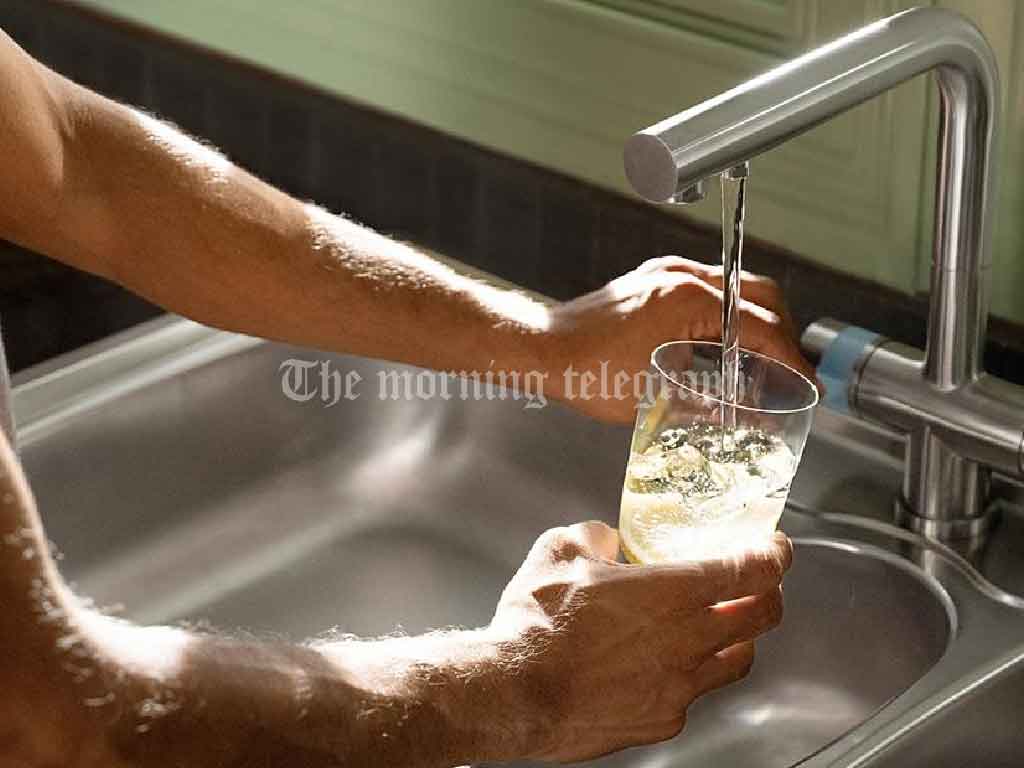
Serious concerns have been raised in Parliament regarding the high chromium content in lime imported for water treatment, with allegations that it could pose a risk of diseases such as cancer, kidney disease, and birth defects. SLPP Hambantota District MP D.V. Chanaka revealed that 25 containers of imported lime were tested by a Sri Lankan inspection team, and further analysis at a private laboratory confirmed an increased level of chromium, raising alarm over its potential health risks.
Speaking in Parliament on the 6th, MP Chanaka emphasized that tap water is the most commonly consumed source of drinking water in Sri Lanka, with major treatment plants located in Ratmalana, Galle, and Ambatale. He pointed out that strict guidelines regulate the purification process, specifying the allowable milligram amounts of different chemical components. The discovery of chromium in the lime used for treatment violates these safety standards, posing long-term health threats to the public.
Expressing further concerns, MP Chanaka stated that the importation of contaminated lime appears to be a recent development, questioning who is behind this operation and whose interests are being served. He called for an immediate recall and proper recycling of the questionable lime to prevent further risks.
Gampaha District MP Ashoka Ranwala also weighed in, emphasizing the seriousness of the allegation that lime used in water purification contains heavy metals. Explaining the standard production process, he noted that lime, primarily derived from limestone, is not naturally contaminated with heavy metals. He detailed that limestone is sourced from both coral reefs and mountains, and when fired in kilns, it transforms into calcium oxide, which, when mixed with water, becomes calcium hydroxide, the compound commonly used in water purification.
According to MP Ranwala, lime typically does not contain heavy metals, as neither the natural limestone extraction process nor the lime production method introduces such contaminants. However, he acknowledged the possibility that heavy metals could be introduced through external contamination or illegally modified raw materials. Raising further concerns, he questioned whether this lime was legally imported or smuggled into the country.
MP Ranwala also pointed out that lime is commonly used in Sri Lanka for chewing betel, and if contamination is confirmed, it could have wider public health implications beyond just water treatment. He urged the authorities to conduct an immediate investigation to determine the source of the contaminated lime and whether proper quality checks were conducted before its arrival in Sri Lanka.
With growing concerns over water safety and public health, MPs have called for urgent regulatory action to prevent potentially hazardous materials from entering the country’s water supply chain. The investigation into this chromium-contaminated lime scandal is expected to unfold in the coming weeks, with increasing pressure on authorities to ensure stringent quality control measures are in place for all imported raw materials used in essential services such as water purification.





Ashoka Ranwala that font of all knowledge claims that “limestone is sourced from both coral reefs and mountains”. Goodness me what a charlatan. I see he is still masquerading as a Chemical Engineer. He needs psychological help.